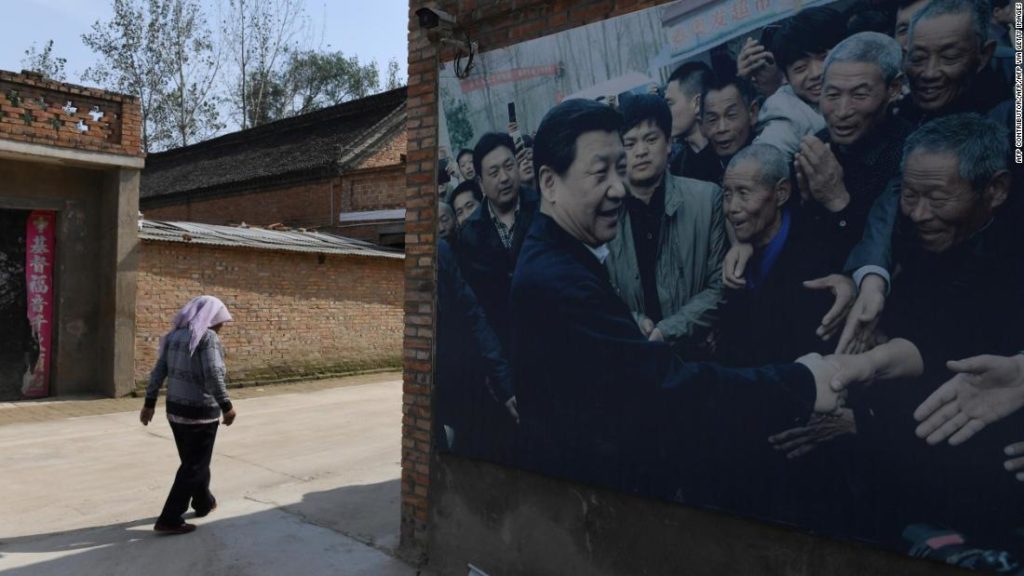The rush to the cities has left rural communities with shrinking populations and fewer job opportunities. In the face of this decline, Xi’s poverty alleviation policies have focused on the countryside.
In its announcement, Xinhua quoted an expert who said this marked the end of “the millenia-old issue of extreme poverty.”
But despite what appears to be a major achievement, there appears to be some confusion in state-run media and among experts over whether this signifies the end of poverty in China.
Speaking on Tuesday at his daily news conference, Chinese Foreign Ministry spokesman Zhao Lijian said that China had “completed the goal of achieving a comprehensive poverty alleviation by the end of 2020.” “The hard-won results are gratifying,” he said.
But others have been more cautious. State-run tabloid Global Times quoted experts as saying that the Chinese government needed to “comprehensively review” the poverty alleviation results, and would announce a result likely in the first half of 2021.
According to Xinhua, Xia said that first there would need to be “random inspections” and “censuses” and then once all the standards had been met, it would be up to the Communist Party’s Central Committee to announce that “the battle against poverty has been won.”
A national divide
Whether or not the target has been officially met, experts said that there was little doubt that the Chinese government would announce within months that it had met its goal of ending absolute poverty by the end of 2020.
While poverty experts around the world have praised China’s work in helping end deprivation in the country, there has also been criticism of both Beijing’s goals and its methods in reaching them.
The divide isn’t just between rural and urban centers but even between cities themselves. While large population centers like Beijing and Shanghai, mainly on the east coast, have seen rapid gains in wealth and living standards, many second and third tier cities lag behind.
Experts are also divided over how successful individual measures to combat poverty have been on the ground in poor areas of China.
Matteo Marchisio, country director for China at the United Nations’ International Fund for Agricultural Development (IFAD), said that in his time working on the ground in impoverished communities he had seen government agencies laying new roads and infrastructure to provide rural villages with electricity and clean water.
Given the sheer size of China, many rural communities have been cut off from basic amenities and transport links for decades, even as large parts of the country have rapidly modernized.
“There might be questions of whether the poverty line was set too low or not … (but) I think for the rest of the world the key message is that ending poverty, moving people out of poverty, is possible,” Marchisio said. “It is really a message of hope.”
“I was in poor villages at the end of 2019 and what I saw was … some things that were going great and other things that were utter disasters, that were worse than nothing,” said John Donaldson, poverty expert and associate professor at Singapore Management University.
Poverty alleviation complete?
With so much time and money invested in the poverty alleviation campaign — not to mention Xi’s personal political capital — experts said that a delayed announcement likely signaled that Beijing wanted to make sure everything was right before going public.
With the silence from the top Communist Party leadership and the muted response in People’s Daily, the Party’s mouthpiece, it appears other state media may have simply jumped the gun.
But despite the confusion in state media, it seems it’s only a matter a time before an announcement is made that poverty alleviation has been successful.
Marchisio said that he had heard of official missions going into the field to “validate the statements of the local governments,” and he expected Beijing was waiting to see their reports before saying that poverty alleviation was a success.
But Xi and his government haven’t outlined how exactly they intend to maintain the momentum after the end of the poverty alleviation campaign or build on the successes so far.
Marchisio said that Beijing firstly needed to ensure that its poverty alleviation successes could be maintained once the Chinese government stopped investing huge sums of public money in rural areas.
He said that there were still hundreds of millions of people in China who were at risk of falling back into absolute poverty. “What has been achieved is just a step in a much longer process of development and the journey is far from over,” he said.
Poverty expert Donaldson said that he hoped the Chinese government would now raise the poverty line higher and announce its aim to further increase the livelihood of its people — but the political messaging of an “end to poverty” had made that hard.
“I think the unfortunate thing of all this is that in many ways it is distracting from China’s actual accomplishments,” he said.
“People are looking at the goal and the deadline and asking will it be eliminated and the answer is almost certainly no. But will all of that distract from the actual achievements of what China has done?”
You may also like
-
Afghanistan: Civilian casualties hit record high amid US withdrawal, UN says
-
How Taiwan is trying to defend against a cyber ‘World War III’
-
Pandemic travel news this week: Quarantine escapes and airplane disguises
-
Why would anyone trust Brexit Britain again?
-
Black fungus: A second crisis is killing survivors of India’s worst Covid wave

